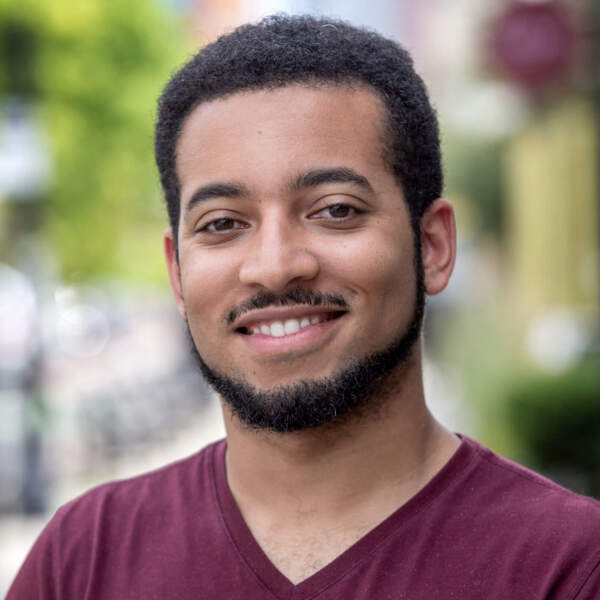Advertisement
Teachers Brace For Difficult Conversations About Racism Amid Protests And Police Violence
ResumeAs students and teachers return to class this fall, they must navigate both a global pandemic and a nationwide conversation about racial injustice after the police killings of George Floyd and other Black Americans.
The latter, especially, presents a challenge for teachers, who will have to navigate potentially uncomfortable topics with students from many different backgrounds.
Two teachers — Victor Terry, a sixth-grade English teacher at Neighborhood House Charter School in Dorchester, and Evie Weinstein-Park, a fourth-grade teacher at the Solomon Schechter Jewish Day School in Newton — spoke with WBUR's Morning Edition about how they’re leading those discussions in their classes this fall.
Interview Highlights
On how the police killings of Black Americans affected their students:
Victor Terry: "I dare say over 80% of our students are Black or Latino. What's often the case for African Americans or Black people, when we express our discontent is often, 'What are you sure? Is it in your head?' But these instances for my students — and they've come back and expressed this to me — showed them this is real. And now other people see what we see.
"I've seen them work in depression. I've seen them work through anger, frustration, confusion, dealing with death, dealing with illnesses in the family. We know that the pandemic has affected Black people and African Americans at a rate that is astronomical on top of all of the epidemic of racial injustice in our country."
Evie Weinstein-Park: "Kids at our school have become more aware of it. We're at a Jewish day school where there's not much diversity. I think they're in the stage of learning that they are privileged. This year, when we came to do civil rights and we were reading about the March on Washington, it was being read at the same exact time that George Floyd was killed by the police. And it became much more real for them. They were asking, 'Well, if this happened in 1963 and people were asking for the same sorts of things they're asking for now, why hasn't it happened yet?'
"I think there's a real desire to do something. And I think the fact that we have that privilege can become the grounds for, 'What can we do?' "
"This year, when we came to do civil rights and we were reading about the March on Washington, it was being read at the same exact time that George Floyd was killed by the police. And it became much more real for them."
Evie Weinstein-Park, fourth-grade teacher
On the historical differences, and ties, between structural anti-Semitism and anti-Black racism:
Weinstein-Park: "That's almost too easy a place to go because I think it's not the same. I'm a child of refugee survivors from Germany, so it is in my past. My parents fled Hitler. But I think this — we're talking about people who have been mistreated from the moment they set foot on this shore. And anti-Semitism has reared its ugly head in many places in the world. But I don't want my students to go there thinking they know what it's like, because we can't know what it's like. This is at a different magnitude."
Terry: "To your point, I'm currently reading 'Caste' by Isabel Wilkerson. ... And she speaks a lot to that. That's a very good point, speaking that when Germans wanted to construct a caste system to put down the Jewish people, they came to America. They looked at the American Jim Crow law to say, 'Well, what is legal precedent for us to be able to incorporate this into our society?' And that was very telling to me."
On how they've addressed race with students in the past:
Terry: "I've incorporated the biography of Malcolm X by Walter Dean Myers into my sixth-grade curriculum. Students have emailed me reflecting on that book and reflecting on the words of Malcolm X and use that as a kind of grounding as they move forward.
"And I found it particularly important to change the narrative during MLK Day beyond the 'I Have a Dream' speech and incorporated his 'Letter from a Birmingham Jail Cell' for students to read and see and discuss and really start to add nuance to him as a person and his views on the movement, this alternative narrative to civil rights and the place of African Americans and Black people in our country."
"This doesn't go away for people like me. It may stop being in the news, but it doesn't stop for my students."
Victor Terry, sixth-grade english teacher
On the challenges of teaching about the current moment:
Weinstein-Park: "We're navigating what it's like to be in a school and keep everybody safe and make sure we have time. But it is going to be really important to be talking about it and keeping it live. It's too easy for people to just have let these events happen and then keep going. I think we want to keep this topic at the forefront. Up on my board, my big question for the year is, 'What is my voice, and how will I use it?' which I got from a race and equity class that I took the summer. And I really want the kids to think about that."
Terry: "Similarly, I am wondering what happens when this topic stops being popular for public consumption, when people stop 'hearing' and we stop seeing the headlines and we stop this revolutionary vigor around the movement right now. This doesn't go away for people like me. It may stop being in the news, but it doesn't stop for my students. Right now, we have a microphone. What happens when people try to take that microphone away from us in three months?"
This segment aired on September 9, 2020.

